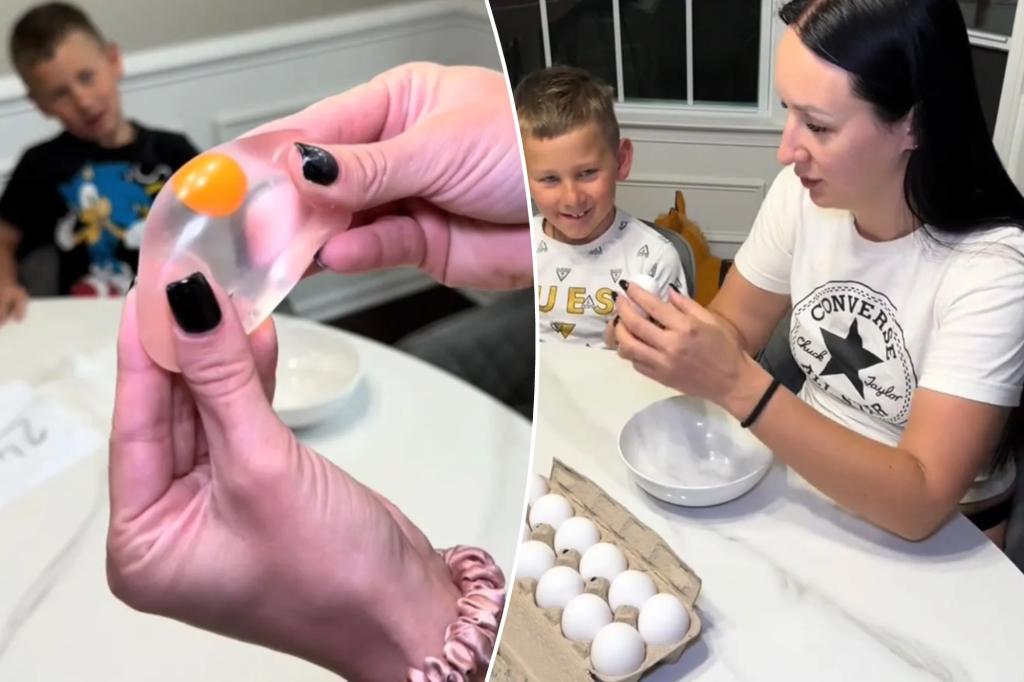An online viral trend involving a fake egg experiment has caught the attention of social media users, sparking debates about its authenticity. The experiment involves combining an uncooked egg, toothpaste, and aluminum foil to create a jelly-like egg. The video showcasing the experiment, posted by digital creator Yana Kuzmich, received over 30 million views as she demonstrated the process with her son. However, experts have refuted the validity of the experiment, stating that the components used would not produce the desired effect.
According to Jennifer Mencias-Munoz, a health science educator, the combination of toothpaste and an egg, both basic substances, would not result in any observable reaction as they do not have opposing chemical properties. She explained that a similar experiment using vinegar to break down the eggshell and create a translucent, rubbery egg would be more scientifically accurate. Don Riefler, a science educator, reiterated that eggshells are primarily composed of calcium carbonate, a component found in toothpaste, therefore negating any potential chemical reactions between the toothpaste and the egg.
Despite the refutations from experts, social media users have tested the fake egg experiment with mixed results. Some users shared their failed attempts at replicating the jelly-like egg, while others fell for the prank and believed it to be authentic. The debate surrounding the experiment’s legitimacy continued in the comments section of the viral video, with some expressing skepticism and others appreciating the creativity of the content. Ultimately, the creator of the video, Yana Kuzmich, confirmed to Fox News Digital that the experiment was indeed a joke, and her son was pleasantly surprised by the viral response.
Various individuals on social media have since attempted the egg-and-toothpaste experiment, with some disclosing the hoax and others playfully embracing the fake egg as the intended outcome. One TikTok user not only debunked the trick but also directed viewers to where they could purchase a rubber egg online, further perpetuating the humor of the viral trend. While the fake egg experiment may not hold up to scientific scrutiny, its widespread popularity and engagement on social media platforms highlight the appeal of simple yet entertaining content that captures the attention and imagination of audiences worldwide.


